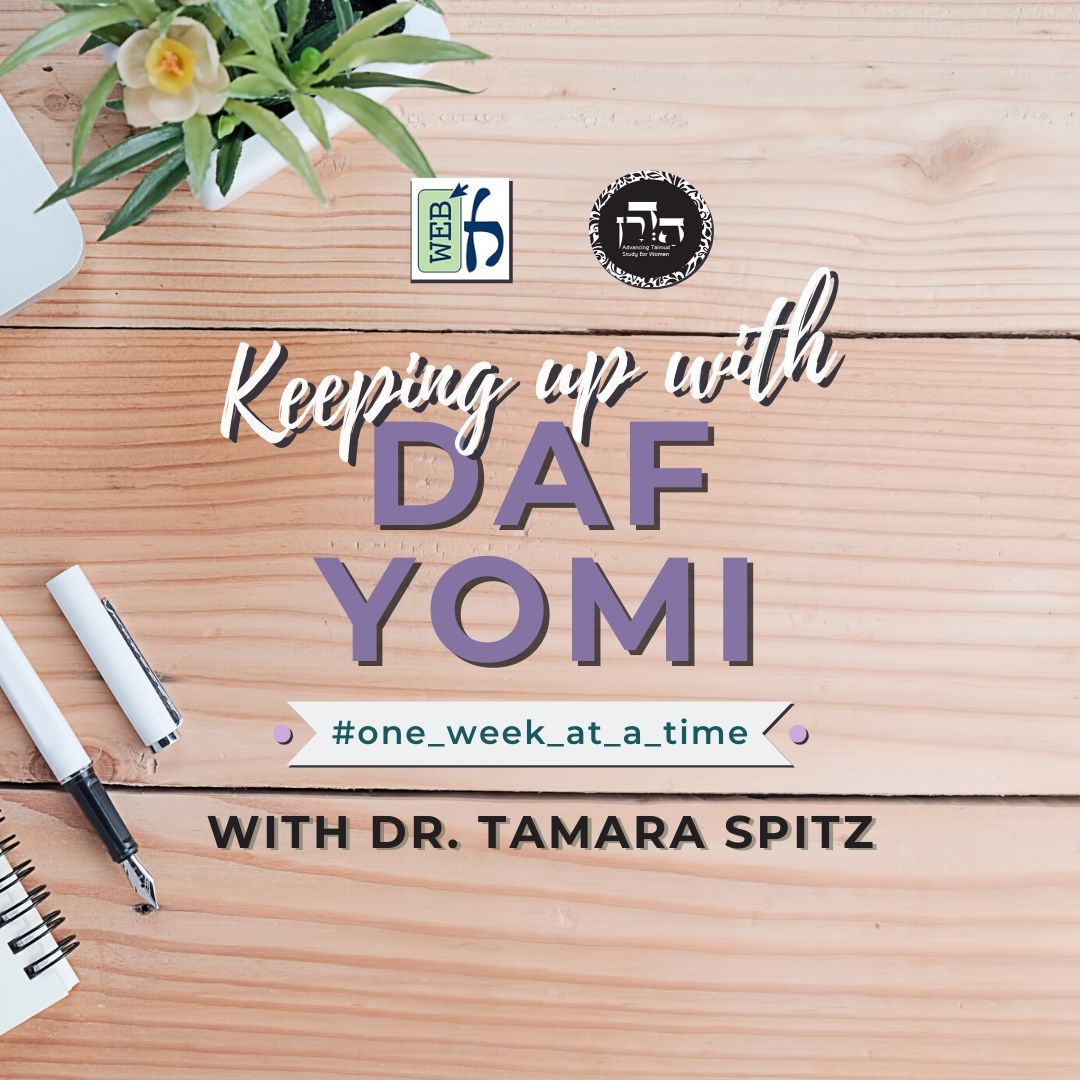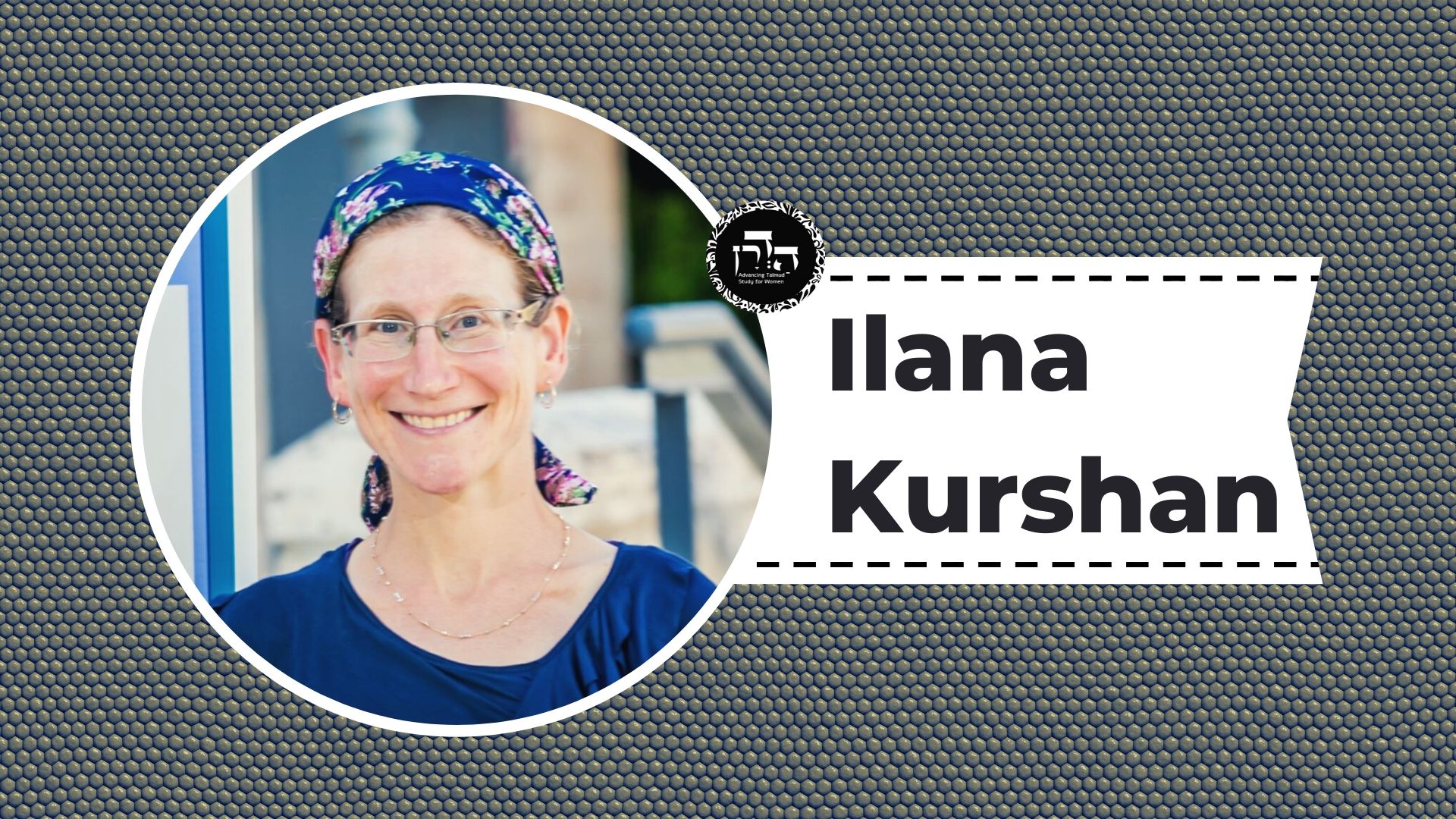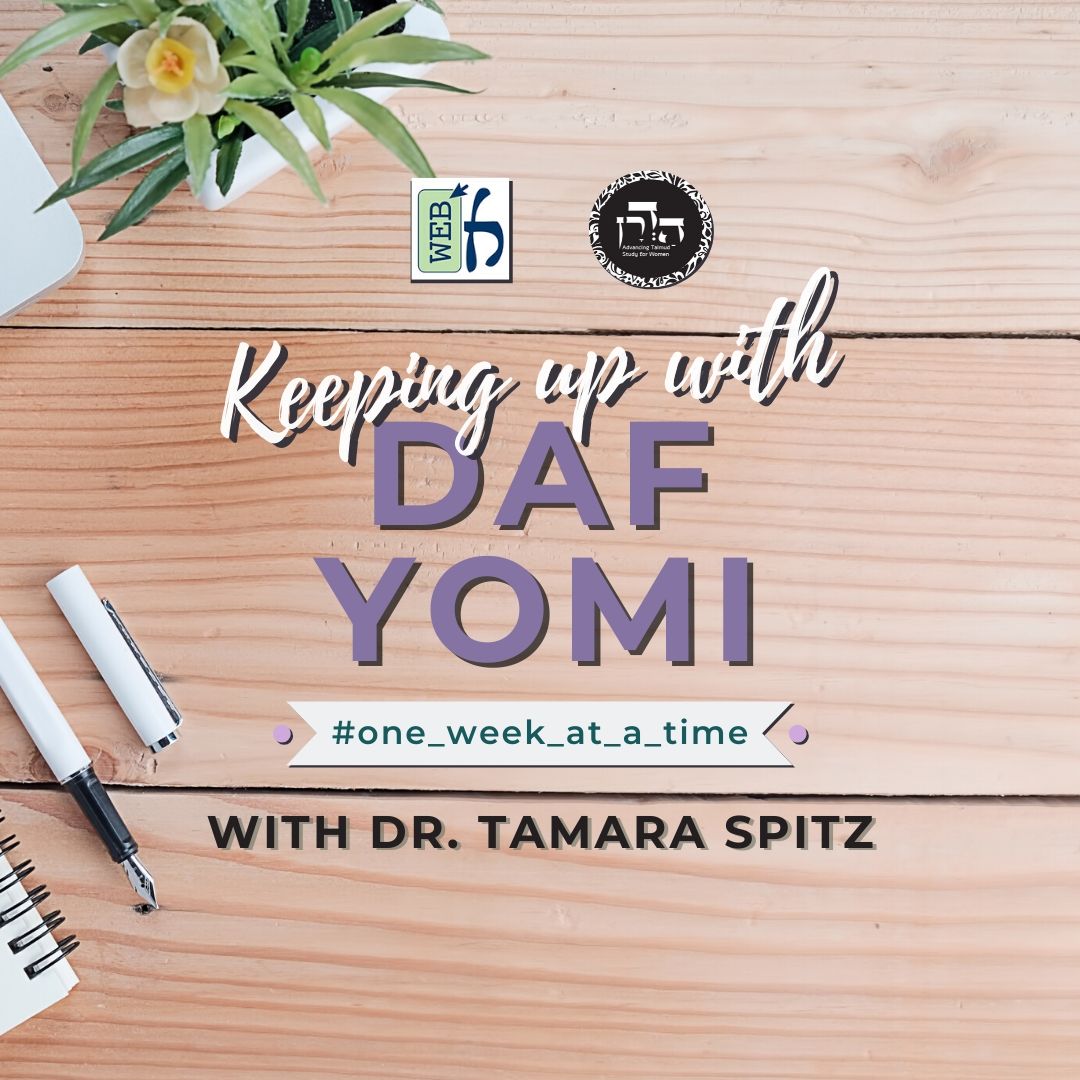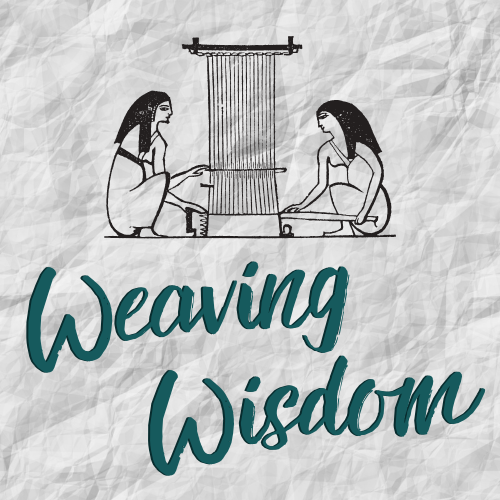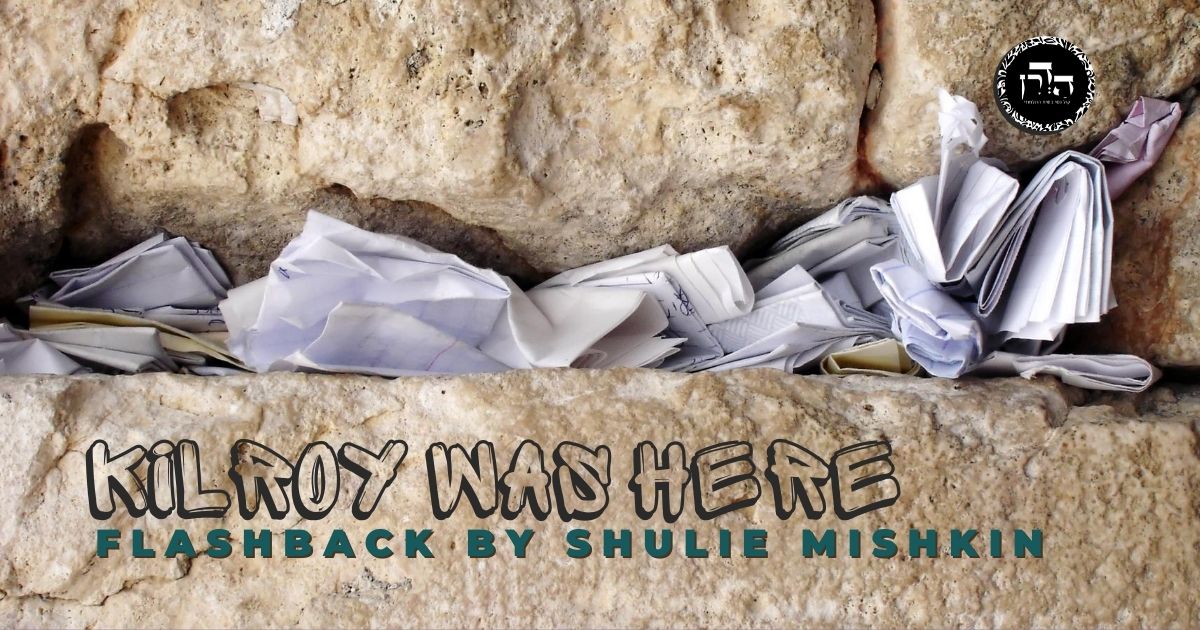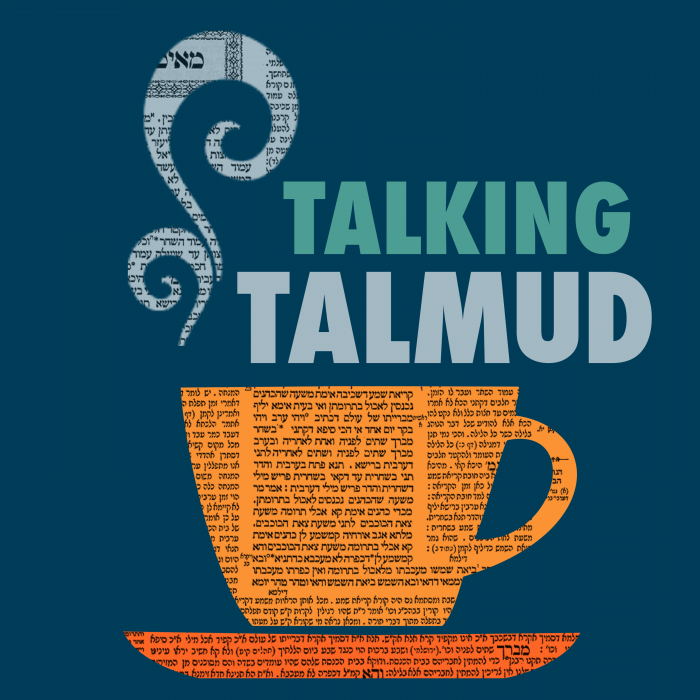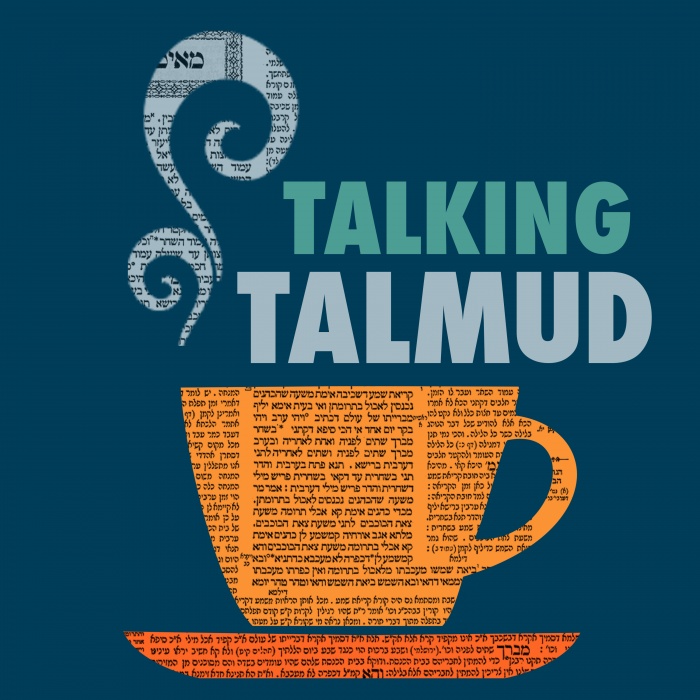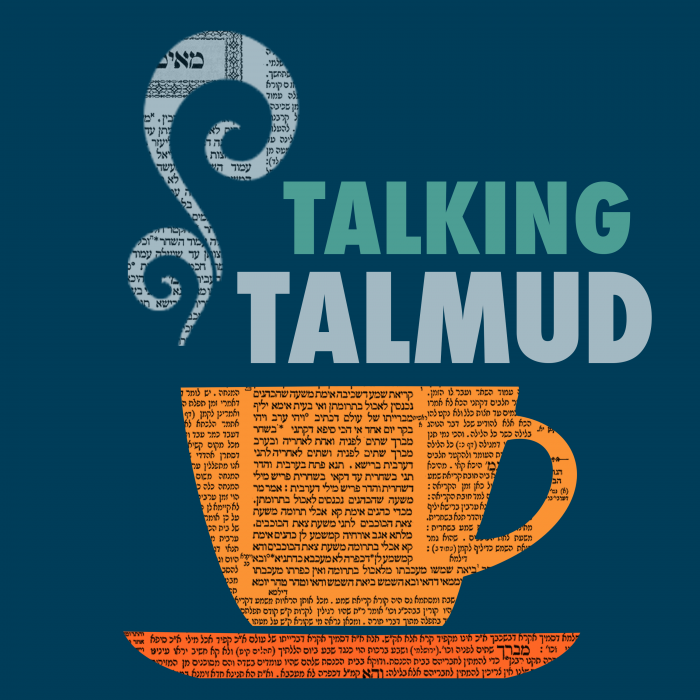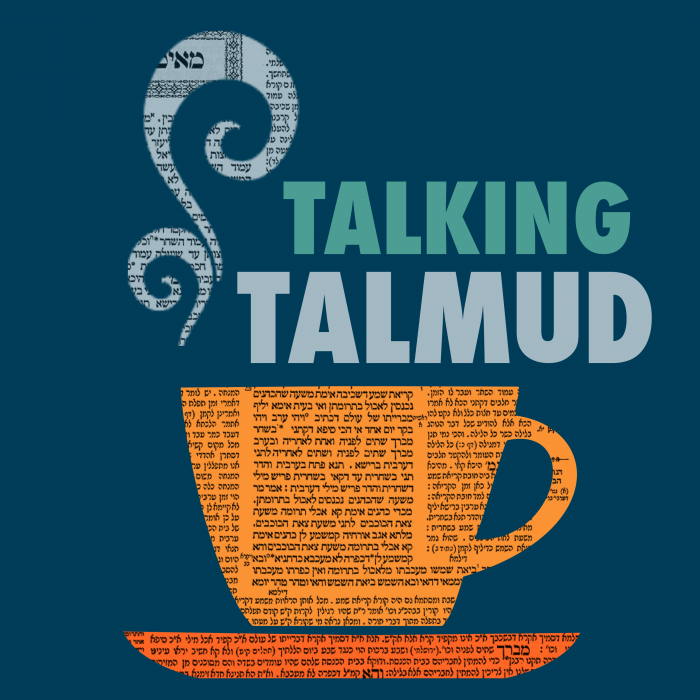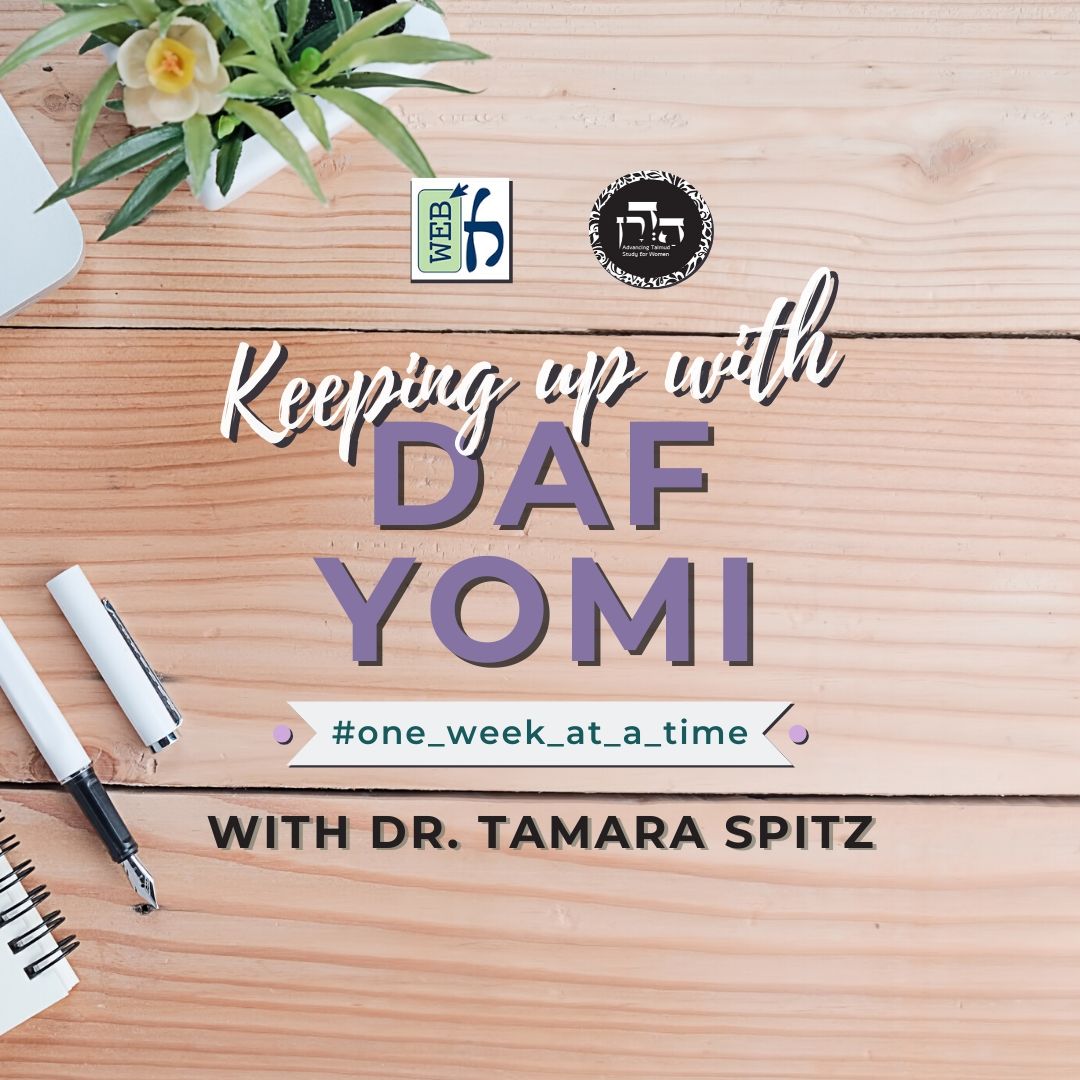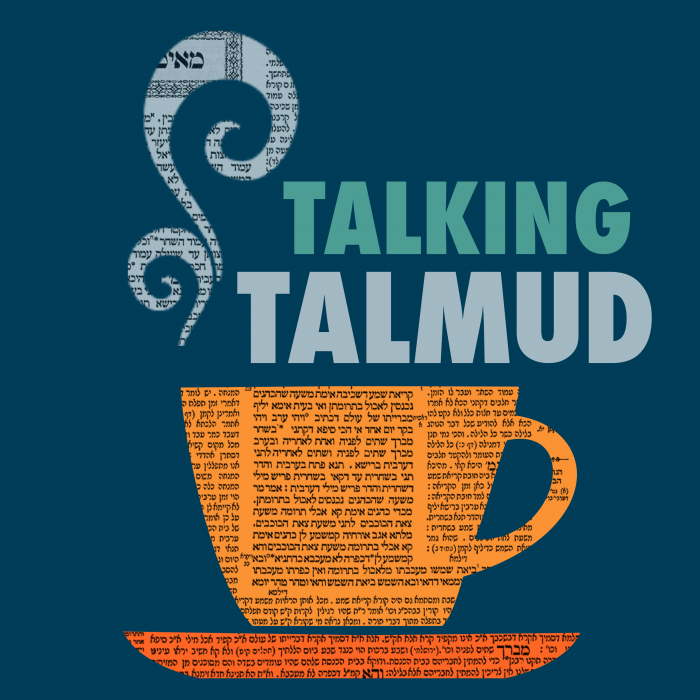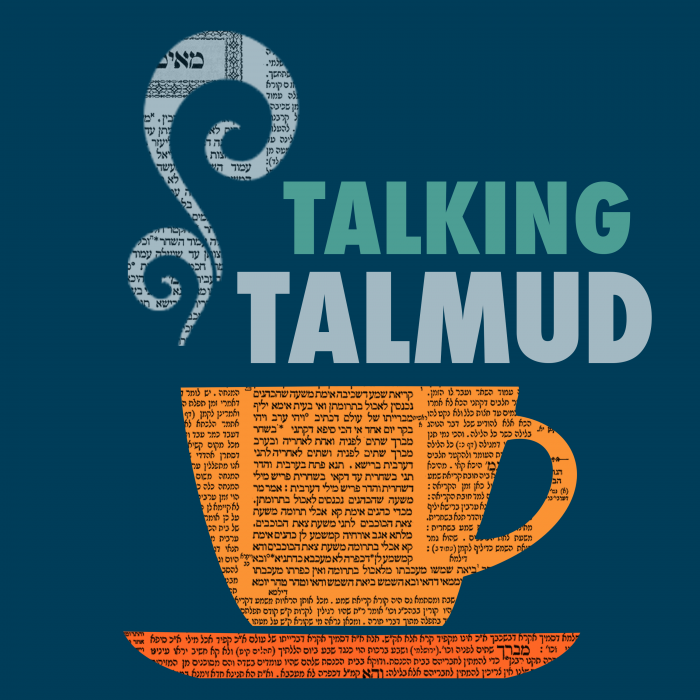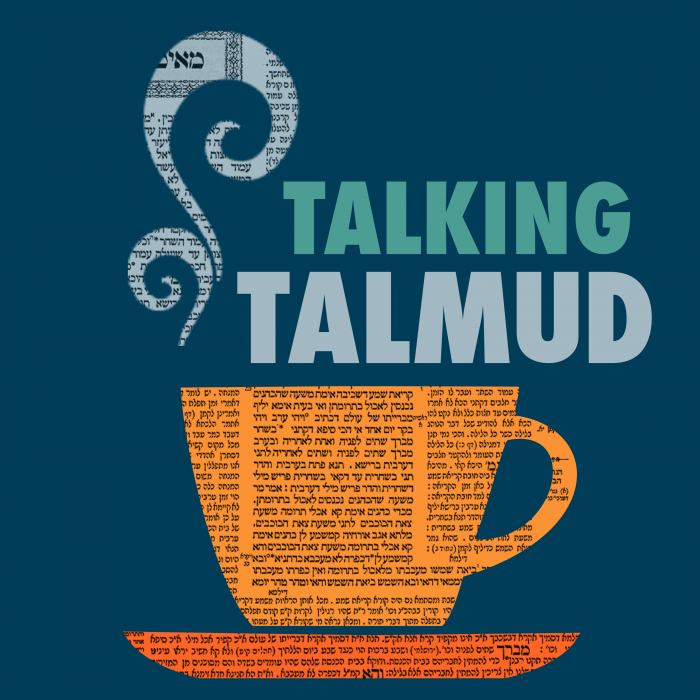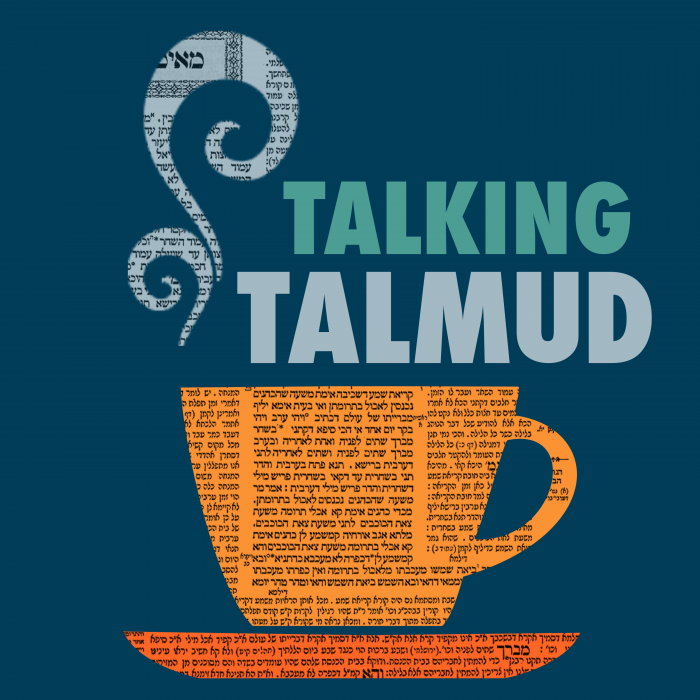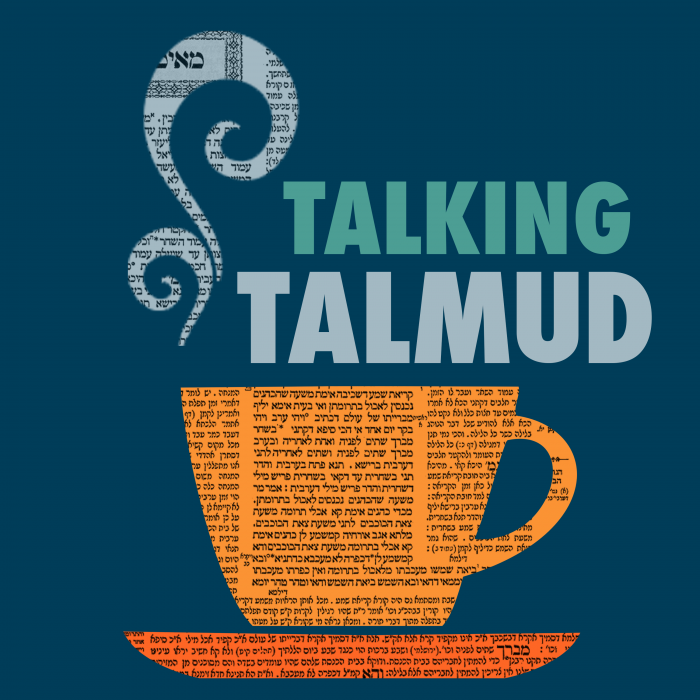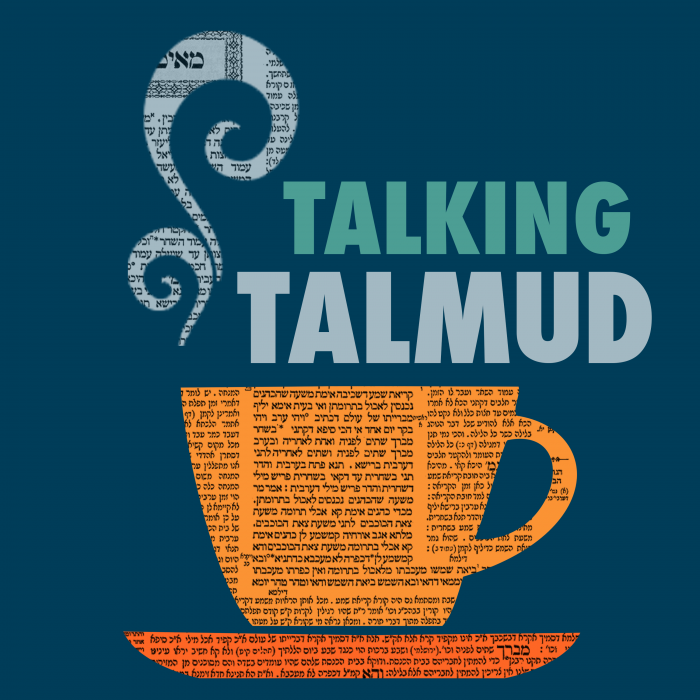Shabbat 146
שֶׁבָּא נָחָשׁ עַל חַוָּה הֵטִיל בָּהּ זוּהֲמָא, יִשְׂרָאֵל שֶׁעָמְדוּ עַל הַר סִינַי — פָּסְקָה זוּהֲמָתָן, גּוֹיִם שֶׁלֹּא עָמְדוּ עַל הַר סִינַי — לֹא פָּסְקָה זוּהֲמָתָן. אֲמַר לֵיהּ רַב אַחָא בְּרֵיהּ דְּרָבָא לְרַב אָשֵׁי: גֵּרִים מַאי? אֲמַר לֵיהּ: אַף עַל גַּב דְּאִינְהוּ לָא הֲווֹ, מַזָּלַיְיהוּ הֲווֹ. דִּכְתִיב: ״אֶת אֲשֶׁר יֶשְׁנוֹ פֹּה עִמָּנוּ עוֹמֵד הַיּוֹם לִפְנֵי ה׳ אֱלֹהֵינוּ וְאֵת אֲשֶׁר אֵינֶנּוּ פֹּה וְגוֹ׳״.
the snake came upon Eve, i.e., when it seduced her to eat from the Tree of Knowledge, it infected her with moral contamination, and this contamination remained in all human beings. When the Jewish people stood at Mount Sinai, their contamination ceased, whereas gentiles did not stand at Mount Sinai, and their contamination never ceased. Rav Aḥa, the son of Rava, said to Rav Ashi: What about converts? How do you explain the cessation of their moral contamination? Rav Ashi said to him: Even though they themselves were not at Mount Sinai, their guardian angels were present, as it is written: “It is not with you alone that I make this covenant and this oath, but with he that stands here with us today before the Lord our God, and with he that is not here with us today” (Deuteronomy 29:13–14), and this includes converts.
וּפְלִיגָא דְּרַבִּי אַבָּא בַּר כָּהֲנָא. דַּאֲמַר רַבִּי אַבָּא בַּר כָּהֲנָא: עַד שְׁלֹשָׁה דּוֹרוֹת לֹא פָּסְקָה זוּהֲמָא מֵאֲבוֹתֵינוּ: אַבְרָהָם הוֹלִיד אֶת יִשְׁמָעֵאל, יִצְחָק הוֹלִיד אֶת עֵשָׂו, יַעֲקֹב הוֹלִיד שְׁנֵים עָשָׂר שְׁבָטִים שֶׁלֹּא הָיָה בָּהֶן שׁוּם דּוֹפִי.
The Gemara points out that this opinion disagrees with Rabbi Abba bar Kahana, as Rabbi Abba bar Kahana said: Until three generations passed, the moral contamination did not cease from our forefathers: Abraham fathered Ishmael, who was of lowly moral stature; Isaac fathered Esau; finally, Jacob fathered twelve tribes in whom there was no flaw. Rabbi Abba bar Kahana holds that the moral contamination ceased in the Patriarchs long before the Revelation at Sinai.
מַתְנִי׳ שׁוֹבֵר אָדָם אֶת הֶחָבִית לֶאֱכוֹל הֵימֶנָּה גְּרוֹגְרוֹת וּבִלְבַד שֶׁלֹּא יִתְכַּוֵּין לַעֲשׂוֹת כְּלִי. וְאֵין נוֹקְבִין מְגוּפָה שֶׁל חָבִית, דִּבְרֵי רַבִּי יְהוּדָה. וַחֲכָמִים מַתִּירִין, וְלֹא יִקְּבֶנָּה מִצִּדָּהּ. וְאִם הָיְתָה נְקוּבָה, לֹא יִתֵּן עָלֶיהָ שַׁעֲוָה, מִפְּנֵי שֶׁהוּא מְמָרֵחַ. אָמַר רַבִּי יְהוּדָה: מַעֲשֶׂה בָּא לִפְנֵי רַבָּן יוֹחָנָן בֶּן זַכַּאי בַּעֲרָב, וְאָמַר: חוֹשְׁשַׁנִי לוֹ מֵחַטָּאת.
MISHNA: A person may break a barrel on Shabbat in order to eat dried figs from it, provided he does not intend to make a vessel. And one may not perforate the plug of a barrel to extract wine from it; rather, one must remove the plug entirely to avoid creating a new opening for the barrel. This is the statement of Rabbi Yehuda. And the Rabbis permit puncturing the plug, but they too restrict this leniency and say that one may not perforate the plug of the barrel on its side. And if it was already perforated, one may not apply wax to it to seal the hole, because in doing so he spreads the wax evenly on the barrel and thereby violates the prohibited labor of smoothing. Rabbi Yehuda said: An incident of that kind came before Rabban Yoḥanan ben Zakkai in the city of Arav, and he said: I am concerned for him, because he may be liable to bring a sin-offering as a result of this.
גְּמָ׳ אָמַר רַבִּי אוֹשַׁעְיָא: לֹא שָׁנוּ אֶלָּא דְּרוּסוֹת, אֲבָל מְפוֹרָדוֹת — לֹא. וּמְפוֹרָדוֹת לֹא?
GEMARA: Rabbi Oshaya said: They only taught that it is permitted to break open a barrel when the figs were pressed together. This is because in that case it is permissible to use a utensil to separate the figs, that utensil may also be utilized to break open the barrel. However, if the figs were already separated, it is not permitted to handle a utensil for the sole purpose of breaking the barrel. The Gemara asks: And is it not permitted to break the barrel for separated figs?
מֵיתִיבִי, רַבִּי שִׁמְעוֹן בֶּן גַּמְלִיאֵל אוֹמֵר: מֵבִיא אָדָם אֶת הֶחָבִית שֶׁל יַיִן וּמַתִּיז רֹאשָׁהּ בְּסַיִיף, וּמַנִּיחָהּ לִפְנֵי הָאוֹרְחִים בְּשַׁבָּת וְאֵינוֹ חוֹשֵׁשׁ! הַהִיא רַבָּנַן, מַתְנִיתִין רַבִּי נְחֶמְיָה הִיא.
The Gemara raises an objection based on a baraita: Rabban Shimon ben Gamliel says: A person may bring a barrel of wine and cut off the top of the barrel with a sword and place it before the guests on Shabbat without concern that it is prohibited to move the sword or that doing so constitutes the creation of a new vessel, which is prohibited. Apparently, it is permitted to move a sword in order to open a barrel on Shabbat even if it is not needed to cut the contents of the barrel. The Gemara answers for Rabbi Oshaya: That baraita, which cites the opinion of Rabban Shimon ben Gamliel, is in accordance with the opinion of the Rabbis, whereas our mishna is in accordance with the opinion of Rabbi Neḥemya, who said that it is prohibited to move any utensil on Shabbat for any purpose other than that for which the utensil is designated.
וּמַאי דּוּחְקֵיהּ דְּרַבִּי אוֹשַׁעְיָא לְאוֹקוֹמֵי מַתְנִיתִין כְּרַבִּי נְחֶמְיָה וּבִדְרוּסוֹת, לוֹקְמַהּ בִּמְפוֹרָדוֹת וְרַבָּנַן! אָמַר רָבָא, מַתְנִיתִין קְשִׁיתֵיהּ: מַאי אִירְיָא דְּתָנֵי ״גְּרוֹגְרוֹת״? לִיתְנֵי ״פֵּירוֹת״! אֶלָּא שְׁמַע מִינַּהּ בִּדְרוּסוֹת.
The Gemara asks: And what forced Rabbi Oshaya to establish the mishna in accordance with the minority opinion of Rabbi Neḥemya and to say that it is referring only to the case of a pressed dried figs? Let him establish that the mishna is referring even to separated figs and is in accordance with the opinion of the Rabbis. Rava said: The mishna posed a difficulty for him; why did the tanna teach particularly about dried figs? Let him teach a more general halakha with regard to fruit. Rather, learn from here that the mishna is referring specifically to pressed dried figs, and it is because one requires a utensil to separate them that he may use it to open the barrel as well.
תַּנְיָא חֲדָא: חוֹתָלוֹת שֶׁל גְּרוֹגְרוֹת וְשֶׁל תְּמָרִים — מַתִּיר וּמַפְקִיעַ וְחוֹתֵךְ. וְתַנְיָא אִידַּךְ: מַתִּיר אֲבָל לֹא מַפְקִיעַ וְלֹא חוֹתֵךְ! לָא קַשְׁיָא, הָא — רַבָּנַן, הָא — רַבִּי נְחֶמְיָה. דְּתַנְיָא, רַבִּי נְחֶמְיָה אוֹמֵר: אֲפִילּוּ תַּרְווֹד וַאֲפִילּוּ טַלִּית וַאֲפִילּוּ סַכִּין — אֵין נִיטָּלִין אֶלָּא לְצוֹרֶךְ תַּשְׁמִישָׁן.
It was taught in one baraita: If one has sealed, wicker baskets of dried figs or of dates, one may untie the basket’s knot on Shabbat, and unbraid the basket and cut it open. And it was taught in another baraita: One may untie the knot, but one may not unbraid or cut the basket. There is a contradiction between these two baraitot. The Gemara resolves this contradiction: This is not difficult. This baraita, which permits all of these actions, is in accordance with the opinion of the Rabbis. That baraita, which prohibits unbraiding and cutting, is in accordance with the opinion of Rabbi Neḥemya. As it was taught in a baraita that Rabbi Neḥemya says: Even a large spoon and even a cloak and even a knife may only be taken on Shabbat for their designated use, and it is therefore prohibited to take a knife to cut open baskets of fruit.
בְּעוֹ מִינֵּיהּ מֵרַב שֵׁשֶׁת: מַהוּ לְמִיבְרַז חָבִיתָא בְּבוּרְטְיָא בְּשַׁבְּתָא? לְפִיתְחָא קָמִיכַּוֵּין, וַאֲסִיר, אוֹ דִילְמָא: לְעַיִן יָפָה קָמִיכַּוֵּין, וּשְׁרֵי? אֲמַר לֵיהּ: לְפִיתְחָא קָא מְכַוֵּין, וַאֲסִיר.
The students raised a dilemma before Rav Sheshet: What is the halakha with regard to whether or not it is permitted to perforate a barrel with a spear [burtiya] on Shabbat? Is the assumption that one intends to make an opening in the barrel and it is therefore prohibited, or perhaps is the assumption that one merely intends to display generosity and it is permitted? Rav Sheshet said to them: He intends to make an opening in the barrel and it is prohibited.
מֵיתִיבִי, רַבָּן שִׁמְעוֹן בֶּן גַּמְלִיאֵל אוֹמֵר: מֵבִיא אָדָם חָבִית שֶׁל יַיִן וּמַתִּיז רֹאשָׁהּ בְּסַיִיף? הָתָם — וַדַּאי לְעַיִן יָפָה קָמִיכַּוֵּין, הָכָא — אִם אִיתָא דִּלְעַיִן יָפָה קָמִיכַּוֵּין — לִפְתְּחֵיהּ מִיפְתָּח.
The Gemara raises an objection based on that which was taught in the baraita that Rabban Shimon ben Gamliel says: One may bring a barrel of wine on Shabbat and cut off its top with a sword. This contradicts Rav Sheshet’s opinion that opening a barrel with a spear is prohibited? He answered them: There, in the case of the sword, since one essentially destroys the barrel by cutting off its top, he certainly intends to display generosity by breaking the barrel open in his guests’ honor. However, here, in the case of spearing a hole in the barrel, if it were true that he intends to display generosity, let him open the top of the barrel by removing its plug. By perforating the barrel, he indicates that he specifically wants there to be a small hole.
אֵין נוֹקְבִין מְגוּפָה וְכוּ׳. אָמַר רַב הוּנָא: מַחֲלוֹקֶת לְמַעְלָה, אֲבָל מִן הַצַּד — דִּבְרֵי הַכֹּל אָסוּר. וְהַיְינוּ דְּקָתָנֵי: ״לֹא יִקְּבֶנָּה מִצִּדָּהּ״. וְרַב חִסְדָּא אָמַר: מַחֲלוֹקֶת מִן הַצַּד, אֲבָל עַל גַּבָּהּ — דִּבְרֵי הַכֹּל מוּתָּר. וְהָא דְּקָתָנֵי ״לֹא יִקְּבֶנָּה מִצִּדָּהּ״ — הָתָם בְּגוּפָהּ דְּחָבִית.
We learned in the mishna: And one may not perforate the plug of a barrel; this is the statement of Rabbi Yehuda, and the Rabbis permit it. Rav Huna said: This dispute is only with regard to a case where one seeks to make a perforation on top of the plug; however, if he seeks to perforate it from the side, everyone agrees that it is prohibited, because people sometimes puncture a barrel beneath the plug in this way. And that is what the mishna is teaching: One may not perforate it on its side. Whereas Rav Ḥisda said: This dispute is with regard to a case where one seeks to perforate it from the side; however, if one seeks to perforate it on top, everyone agrees that it is permitted, and with regard to that which the mishna is teaching: One may not perforate it on its side, there it is referring to perforating the barrel itself, not the plug.
תָּנוּ רַבָּנַן: אֵין נוֹקְבִין נֶקֶב חָדָשׁ בְּשַׁבָּת, וְאִם בָּא לְהוֹסִיף — מוֹסִיף. וְיֵשׁ אוֹמְרִים: אֵין מוֹסִיפִין. וְשָׁוִין, שֶׁנּוֹקְבִין נֶקֶב יָשָׁן לְכַתְּחִילָּה. וְתַנָּא קַמָּא: מַאי שְׁנָא מִנֶּקֶב חָדָשׁ דְּלָא — דְּקָא מְתַקֵּן פִּיתְחָא, אוֹסוֹפֵי נָמֵי — קָא מְתַקֵּן פִּיתְחָא!
The Sages taught in a baraita: One may not create a new hole in a vessel on Shabbat. And if one seeks to add to and widen an already existing hole, one may add to it; and some say that one may not even add to an already existing hole. And all opinions, even those who generally prohibit creating new holes, agree that one may perforate the seal over an old hole, even ab initio. And with regard to the opinion of the first tanna, the Gemara asks: What is different about perforating the seal over an old hole that makes it permitted, whereas creating a new hole is not permitted? Is it because in creating the new hole he is creating an opening? If so, by adding to an already existing hole he is also creating an opening.
אָמַר רַבָּה: דְּבַר תּוֹרָה — כׇּל פֶּתַח שֶׁאֵינוֹ עָשׂוּי לְהַכְנִיס וּלְהוֹצִיא — אֵינוֹ פֶּתַח, וְרַבָּנַן הוּא דִּגְזוּר מִשּׁוּם לוּל שֶׁל תַּרְנְגוֹלִין, דְּעָבֵיד לְעַיּוֹלֵי אַוֵּירָא וּלְאַפּוֹקֵי הַבְלָא. וְאִם בָּא לְהוֹסִיף — מוֹסִיף, אוֹסוֹפֵי וַדַּאי בְּלוּל שֶׁל תַּרְנְגוֹלִים — לָא אָתֵי לְאוֹסוֹפֵי
Rabba said: Actually, even creating a new hole is not prohibited, because by Torah law, any opening that is not made to both insert and to remove is not considered an opening, and a hole that one perforates in a barrel is intended exclusively to remove the contents of the barrel. And it was the Sages who issued a decree that one may not perforate a vessel because it is similar to perforating a chicken coop, which is designated for use in both directions, e.g., to let in air and to let out heat, and it is therefore prohibited by Torah law. And therefore we learned that if one seeks to add to an existing hole one may add to it. There is no reason to prohibit this due to concern that one may do so in a chicken coop, because one will certainly not come to add to an already existing hole in a chicken coop,
מִשּׁוּם רִיחְשָׁא. וְיֵשׁ אוֹמְרִים אֵין מוֹסִיפִים — זִימְנִין דְּלָא תַּקְּנֵיהּ מֵעִיקָּרָא, וְאָתֵי לְאַרְווֹחֵי בֵּיהּ. דָּרֵשׁ רַב נַחְמָן מִשּׁוּם רַבִּי יוֹחָנָן הֲלָכָה כְּיֵשׁ אוֹמְרִים.
because one does not want vermin to enter the coop. And when we learned that some say that one may not add to a preexisting hole, that ruling is also due to a decree lest one come to do so in a chicken coop, as sometimes one does not properly create the opening initially, and comes to expand it so that it will be fit for use. In that case, widening the opening is considered its completion. Rav Naḥman taught in the name of Rabbi Yoḥanan: The halakha is in accordance with the statement cited as: Some say.
וְשָׁוִין שֶׁנּוֹקְבִין נֶקֶב יָשָׁן לְכַתְּחִלָּה. אָמַר רַב יְהוּדָה אָמַר שְׁמוּאֵל: לֹא שָׁנוּ אֶלָּא בִּמְקוֹם הֶעָשׂוּי לְשַׁמֵּר, אֲבָל לְחַזֵּק — אָסוּר. הֵיכִי דָּמֵי לְשַׁמֵּר, הֵיכִי דָּמֵי לְחַזֵּק? אָמַר רַב חִסְדָּא: לְמַעְלָה מִן הַיַּיִן — זֶהוּ לְשַׁמֵּר, לְמַטָּה מִן הַיַּיִן — זֶהוּ לְחַזֵּק. רָבָא אָמַר: לְמַטָּה מִן הַיַּיִן נָמֵי זֶהוּ לְשַׁמֵּר. וְהֵיכִי דָּמֵי לְחַזֵּק — כְּגוֹן שֶׁנִּיקְּבָה לְמַטָּה מִן הַשְּׁמָרִים.
We learned in the baraita: And everyone agrees that one may perforate an old hole that was sealed ab initio. Rav Yehuda said that Shmuel said: They only taught this in a place where the hole is made to strain the wine from the sediment; however, if it was made to reinforce the barrel, it is prohibited (ge’onim). The Gemara asks: What are the circumstances in which a hole is considered to have been made to strain and what are the circumstances in which a hole is meant to reinforce the barrel? Rav Ḥisda said: If one perforates the barrel above the level of the wine, that is a hole designated to strain the wine, and if one perforates the barrel below the level of the wine, that is a hole designated to reinforce the barrel. Rava said: A hole made below the level of the wine is also designated to strain the wine, and what are the circumstances in which a hole is meant to reinforce the barrel? It is in a case where one perforated it below the sediment.
אֲמַר לֵיהּ אַבָּיֵי לְרָבָא, תַּנְיָא דִּמְסַיַּיע לָךְ: בַּיִת סָתוּם — יֵשׁ לוֹ אַרְבַּע אַמּוֹת, פָּרַץ אֶת פַּצִּימָיו — אֵין לוֹ אַרְבַּע אַמּוֹת. בַּיִת סָתוּם — אֵינוֹ מְטַמֵּא כׇּל סְבִיבָיו, פָּרַץ אֶת פַּצִּימָיו — מְטַמֵּא כׇּל סְבִיבָיו.
Abaye said to Rava: A baraita was taught that supports your opinion that any opening retains its status unless it is absolutely clear that it is no longer used for that purpose. When dividing a courtyard between the owners of the houses in it, in addition to an equal share of the courtyard, each receives the four cubits adjoining each entrance leading from his house to the courtyard. A house with a sealed entrance still has the four cubits adjoining that entrance, because the entrance can be reopened. It is only if one broke its doorposts and sealed the entrance that the entrance has been completely negated and it does not have the four cubits adjoining it. This applies similarly to the halakhot of ritual impurity: A house in which there is a corpse transmits ritual impurity only through its doorways. A house with sealed entrances does not render all of its surroundings ritually impure; the ritual impurity only extends opposite the entrances. However, if one broke its doorposts, it is no longer considered an entrance, and it renders all of its surroundings ritually impure.
גּוּבְתָּא, רַב אָסַר וּשְׁמוּאֵל שָׁרֵי. מְחַתֵּךְ לְכַתְּחִלָּה — דְּכוּלֵּי עָלְמָא לָא פְּלִיגִי דַּאֲסִיר. אַהְדּוֹרֵי — דְּכוּלֵּי עָלְמָא לָא פְּלִיגִי דִּשְׁרֵי. כִּי פְּלִיגִי דַּחֲתִיכָה וְלָא מְתַקְּנָא: מַאן דְּאָסַר גָּזְרִינַן דִּילְמָא אָתֵי לְמִיחְתַּךְ לְכַתְּחִלָּה, וּמַאן דְּשָׁרֵי לָא גָּזְרִינַן.
With regard to inserting a reed through a hole in a barrel in order to draw wine through it, Rav prohibited doing so on Shabbat, and Shmuel permitted doing so. The Gemara elaborates: With regard to cutting and inserting the reed ab initio, everyone agrees that it is prohibited, because this is considered fashioning a utensil. With regard to restoring a prepared reed to its place, everyone agrees that it is permitted. When they disagree is in a case where the reed has been cut but not yet inserted into the barrel. The one who prohibits doing so, Rav, holds that we issue a decree that prohibits inserting the reed due to the concern that perhaps one will come to cut the reed ab initio for this purpose; and the one who permits doing so, Shmuel, holds that we do not issue a decree in that situation.
כְּתַנָּאֵי: אֵין חוֹתְכִין שְׁפוֹפֶרֶת בְּיוֹם טוֹב, וְאֵין צָרִיךְ לוֹמַר בְּשַׁבָּת. נָפְלָה — (אֵין) מַחֲזִירִין אוֹתָהּ בְּשַׁבָּת, וְאֵין צָרִיךְ לוֹמַר בְּיוֹם טוֹב. וְרַבִּי יֹאשִׁיָּה מֵיקֵל.
The Gemara notes that Rav and Shmuel’s dispute is parallel to a dispute between tanna’im: One may not cut a reed tube on a Festival, and needless to say, it is prohibited on Shabbat. And if it was already cut but fell, one may restore it to its place on Shabbat, and needless to say, it is permitted to do so on a Festival. And Rabbi Yoshiya is lenient in this matter.
רַבִּי יֹאשִׁיָּה אַהֵיָיא? אִילֵּימָא אַרֵישָׁא — הָא קָמְתַקֵּן מָנָא? אֶלָּא אַסֵּיפָא — תַּנָּא קַמָּא נָמֵי מִישְׁרֵא קָשָׁרֵי? אֶלָּא דַּחֲתִיכָה וְלָא מְתַקְּנָא אִיכָּא בֵּינַיְיהוּ, מָר סָבַר: גָּזְרִינַן. וּמָר סָבַר: לָא גָּזְרִינַן. דָּרַשׁ רַב שִׁישָׁא בְּרֵיהּ דְּרַב אִידֵּי מִשְּׁמֵיהּ דְּרַבִּי יוֹחָנָן: הֲלָכָה כְּרַבִּי יֹאשִׁיָּה.
The Gemara asks with regard to the statement of Rabbi Yoshiya: On which section of the baraita is he commenting? If you say that he is referring to the first clause of the baraita, which discusses cutting a tube, isn’t he creating a vessel, which is a prohibited labor? How could Rabbi Yoshiya permit doing so? Rather, say that he is referring to the latter clause of the baraita, which discusses restoring a fallen tube to its place; the first tanna also permits doing so, leaving no room for further leniency by Rabbi Yoshiya. Rather, it is with regard to a case in which it was cut but not inserted into the barrel that there is a practical difference between them: One Sage, the first tanna, held that we issue a decree that prohibits doing so, and one Sage held that we do not issue a decree. The Gemara concludes: Rav Sheisha, son of Rav Idi, taught publicly in the name of Rabbi Yoḥanan: The halakha is in accordance with the opinion of Rabbi Yoshiya.
וְאִם הָיְתָה נְקוּבָה וְכוּ׳. מִישְׁחָא — רַב אָסַר, וּשְׁמוּאֵל שָׁרֵי. מַאן דְּאָסַר — גָּזְרִינַן מִשּׁוּם שַׁעֲוָה. וּמַאן דְּשָׁרֵי — לָא גָּזְרִינַן. אֲמַר לֵיהּ רַב שְׁמוּאֵל בַּר בַּר חָנָה לְרַב יוֹסֵף: בְּפֵירוּשׁ אֲמַרְתְּ לַן מִשְּׁמֵיהּ דְּרַב — מִישְׁחָא שְׁרֵי!
And we also learned in the mishna: And if the barrel was already perforated, one may not seal the hole with wax. There is a dispute among the amora’im whether or not it is permitted to seal that hole with oil: Rav prohibited doing so, and Shmuel permitted doing so. The Gemara explains: The one who prohibits doing so, Rav, holds that we issue a decree prohibiting oil due to concern lest one come to seal the hole with wax. And the one who permits doing so, Shmuel, holds that we do not issue a decree prohibiting oil due to concern lest one come to use wax to seal the hole. Rav Shmuel bar bar Ḥana said to Rav Yosef: How is Rav cited as prohibiting the sealing of the hole in a barrel with oil on Shabbat? You told us explicitly in Rav’s name: Oil is permitted for use in sealing a hole.
אָמַר טָבוּת רִישְׁבָּא אָמַר שְׁמוּאֵל: הַאי טִרְפָא דְאַסָּא — אָסוּר. מַאי טַעְמָא? רַב יֵימַר מִדִּפְתִּי אָמַר: גְּזֵירָה מִשּׁוּם מַרְזֵב. רַב אָשֵׁי אָמַר: גְּזֵירָה שֶׁמָּא יִקְטוֹם. מַאי בֵּינַיְיהוּ? אִיכָּא בֵּינַיְיהוּ דִּקְטִים וּמַנַּח.
The Gemara cites a statement that Tavut the hunter said that Shmuel said: With regard to this myrtle leaf, it is prohibited to insert it into a hole in a barrel to be used as a spout. The Gemara asks: What is the reason for this? Rav Yeimar of Difti said: It is a decree issued due to the concern lest one come to make an actual spout on Shabbat. Rav Ashi said: It is a decree issued lest one cut a myrtle leaf from its branch on Shabbat for this purpose. The Gemara asks: What is the practical difference between them? The Gemara answers: There is a practical difference between them in a case in which the leaves were already cut and placed, as in that case, Rav Ashi’s concern would not apply, but Rav Yeimar would still rule stringently.
בֵּי סַדְיָא, רַב אָסַר וּשְׁמוּאֵל שָׁרֵי. בְּרַכִּין — דְּכוּלֵּי עָלְמָא לָא פְּלִיגִי דִּשְׁרֵי. בְּקָשִׁין — דְּכוּלֵּי עָלְמָא לָא פְּלִיגִי דַּאֲסִיר. כִּי פְּלִיגִי — בְּמִיצְעֵי: מַאן דְּאָסַר — מִיחְזֵי כְּמַשּׂוֹי, וּמַאן דְּשָׁרֵי לָא מִיחְזֵי כְּמַשּׂוֹי.
The Gemara cites another dispute between Rav and Shmuel: With regard to felt cloths upon which people typically sit but that may also be worn as cloaks, the Sages disagreed whether or not one may wrap himself in them on Shabbat and transfer them from one place to another through a public domain. Rav prohibited doing so, and Shmuel permitted doing so. The Gemara elaborates: With regard to articles made of soft felt, everyone agrees that it is permitted, as their legal status is that of other garments. With regard to articles made of hard felt, everyone agrees that it is prohibited. When they disagree, it is with regard to felt articles that have an intermediate level of softness. The one who prohibits wearing them, Rav, holds that one who wears these as a garment appears as one carrying a burden, and the one who permits wearing them, Shmuel, holds that it does not appear as one carrying a burden, because the material appears to be a garment.
וְהָא דְּרַב, לָאו בְּפֵירוּשׁ אִיתְּמַר אֶלָּא מִכְּלָלָא אִיתְּמַר. דְּרַב אִיקְּלַע לְהָהוּא אַתְרָא דְּלָא הֲוָה לֵיהּ רַוְוחָא, נְפַק יְתֵיב בְּכַרְמְלִית. אַיְיתוֹ לֵיהּ בֵּי סַדְיָא, לָא יְתֵיב. מַאן דַּחֲזָא סָבַר מִשּׁוּם דְּבֵי סַדְיָא אֲסִיר, וְלָא הִיא, דְּרַב אַכְרוֹזֵי מַכְרִיז: בֵּי סַדְיָא שְׁרֵי, וּמִשּׁוּם כְּבוֹד רַבּוֹתֵינוּ לֹא יָשַׁב עָלָיו. וּמַאן נִינְהוּ — רַב כָּהֲנָא וְרַב אַסִּי.
The Gemara points out that this opinion attributed to Rav was not stated explicitly by him; rather, it was stated by inference, i.e., based on Rav’s conduct, it was concluded that this is his opinion. As Rav happened to come to a certain place where there was not enough room for him and his students inside the house, and therefore, he went out and sat in a karmelit. They brought him felt cloths by wearing them outside, and he did not sit on them. One who saw this incident assumed that he refused to sit on them because it is prohibited to move cloths in this manner; however, that is not so, as Rav used to proclaim that it is permitted to move articles made of felt in this manner. And it was in deference to our Rabbis who were there that he did not sit on it, as he did not want to sit on a higher and more distinguished surface than they did. The Gemara adds: And who were these Rabbis? Rav Kahana and Rav Asi, who were Rav’s disciples and colleagues.
מַתְנִי׳ נוֹתְנִין תַּבְשִׁיל לְתוֹךְ הַבּוֹר בִּשְׁבִיל שֶׁיְּהֵא שָׁמוּר, וְאֶת הַמַּיִם הַיָּפִים בָּרָעִים, בִּשְׁבִיל שֶׁיִּצָּנוּ. וְאֶת הַצּוֹנֵן בַּחַמָּה בִּשְׁבִיל שֶׁיֵּחַמּוּ. מִי שֶׁנָּשְׁרוּ כֵּלָיו בַּדֶּרֶךְ בַּמַּיִם — מְהַלֵּךְ בָּהֶן וְאֵינוֹ חוֹשֵׁשׁ. הִגִּיעַ לֶחָצֵר הַחִיצוֹנָה — שׁוֹטְחָן בַּחַמָּה, אֲבָל לֹא כְּנֶגֶד הָעָם.
MISHNA: One may place a cooked dish into an empty pit on Shabbat so that it will be protected from the heat, and similarly, one may place good potable water into a vessel and place the vessel into bad, non-potable water so that the potable water will cool off. And one may also place cold water out in the sun so that it will be heated. They also taught: Someone whose garments fell into water while walking on the road may replace them and continue to walk wearing them and need not be concerned about violating the prohibitions against wringing or laundering. When he reaches the outer courtyard of a place where he can leave his clothes, he spreads them in the sun to dry, but not opposite the masses, as they will suspect him of laundering on Shabbat.
גְּמָ׳ פְּשִׁיטָא! מַהוּ דְתֵימָא: נִיגְזַר מִשּׁוּם אַשְׁווֹיֵי גוּמּוֹת, קָא מַשְׁמַע לַן.
GEMARA: The Gemara is puzzled by the halakha that was taught about placing food in a pit: It is obvious that it is permitted. The Gemara answers: Lest you say: Let us issue a decree prohibiting this due to concern lest one perform the prohibited labor of leveling holes in the pit when he places the pot in it, it teaches us that no decree was issued due to this concern.
וְאֶת הַמַּיִם הַיָּפִים בָּרָעִים. פְּשִׁיטָא! סֵיפָא אִיצְטְרִיכָא לֵיהּ. וְאֶת הַצּוֹנֵן בַּחַמָּה, הָא נָמֵי פְּשִׁיטָא! מַהוּ דְתֵימָא: נִיגְזוֹר דִּילְמָא אָתֵי לְאַטְמוֹנֵי בְּרֶמֶץ, קָא מַשְׁמַע לַן.
We also learned in the mishna: One may place good water into bad water on Shabbat in order to cool it off. The Gemara says: It is obvious that it is permitted. The Gemara explains: It is necessary to mention the latter clause of the mishna, which states that it is permitted to place cold water out in the sun. The Gemara expresses surprise: This, too, is obvious. The Gemara answers: Lest you say that we should issue a decree prohibiting this action, because perhaps one will come to insulate it in hot ashes to warm it up, which also heats the water without actually placing it on the fire, it teaches us that we do issue a decree in that case.
מִי שֶׁנָּשְׁרוּ וְכוּ׳. אָמַר רַב יְהוּדָה אָמַר רַב: מִכׇּל מָקוֹם שֶׁאָסְרוּ חֲכָמִים מִפְּנֵי מַרְאִית הָעַיִן — אֲפִילּוּ בְּחַדְרֵי חֲדָרִים אָסוּר. תְּנַן: שׁוֹטְחָן בַּחַמָּה אֲבָל לֹא כְּנֶגֶד הָעָם! תַּנָּאֵי הִיא, דְּתַנְיָא: שׁוֹטְחָן בַּחַמָּה אֲבָל לֹא כְּנֶגֶד הָעָם. רַבִּי אֶלְעָזָר וְרַבִּי שִׁמְעוֹן אוֹסְרִין.
We learned in the mishna that one whose garments fell into water need not be concerned about wringing or laundering the clothing and may replace them and continue walking, and then place them to dry in the sun, but not before the masses. This is so that they will not suspect him of laundering on Shabbat. In this regard, the Gemara cites that which Rav Yehuda said that Rav said: Wherever the Sages prohibited an action due to the appearance of prohibition, even in the innermost chambers where no one will see it, it is prohibited, as the Sages did not distinguish between different circumstances. The Gemara says: We learned in the mishna that one may spread them in the sun but not opposite the masses, which contradicts that principle. The Gemara explains: It is a dispute between tanna’im, as it was taught in a baraita: One may spread them out in the sun but not opposite the masses. Rabbi Elazar and Rabbi Shimon prohibit doing so, which is a precedent for the opinion that Rav Yehuda stated in the name of Rav.
אָמַר רַב הוּנָא:
Rav Huna said:




